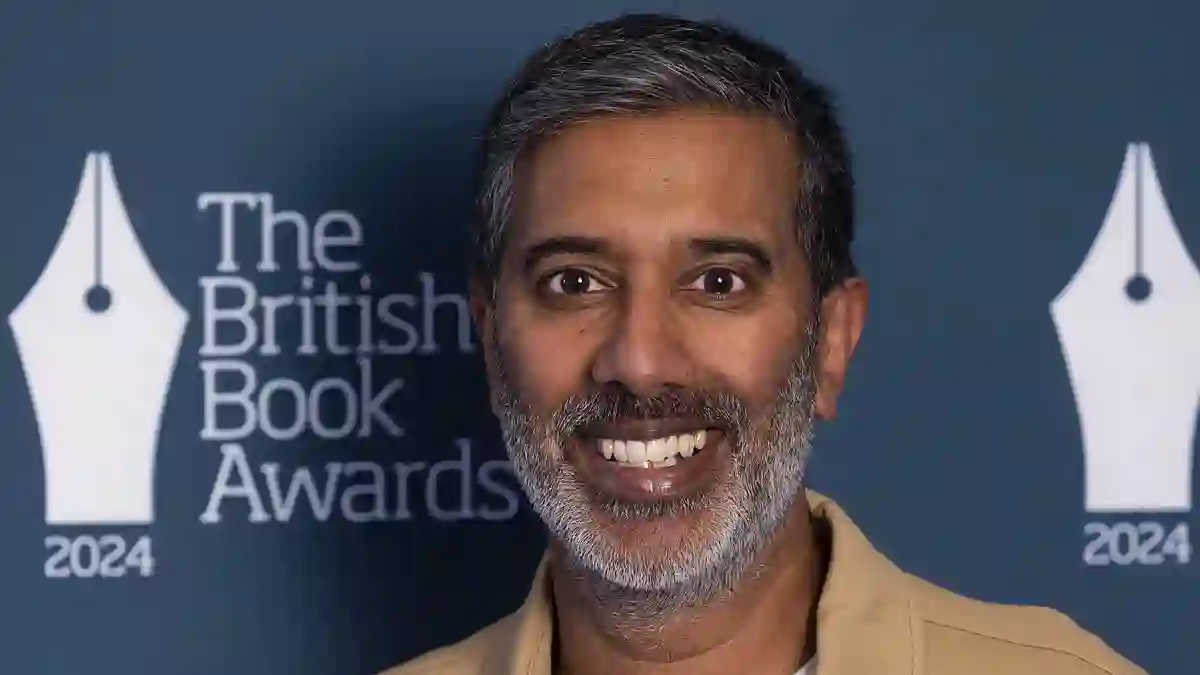After more than two decades on the airwaves, radio and TV presenter Nihal Arthanayake is trading the studio mic for the stand-up stage.
But his departure from the BBC isn’t just about trying something new—it’s about speaking out.
Leaving the BBC Behind
Nihal, 54, recently walked away from his £145,000-per-year role at BBC Radio 5 Live after a 23-year broadcasting career.
From Radio 1 to the Asian Network, he’s been a familiar voice across the BBC.
But after years of growing frustration with how the organization operates—especially when it comes to news coverage—he decided it was time to move on.
In a candid interview with The Times, Nihal didn’t mince his words: “The BBC is in an existential crisis,” he said.
“Especially BBC News.”
He criticized the broadcaster for failing to live up to its reputation for impartiality—particularly in how it’s handled coverage of the Israel-Gaza conflict.
Trust and Truth: What’s Gone Wrong?
For Nihal, the BBC’s credibility lies in its ability to hold power accountable.
“No one’s checking for impartiality on Strictly Come Dancing or The Traitors,” he said.
“The trust comes from the news division—and it’s failing.”
He believes this failure is not just disappointing, but dangerous for public trust.
Diversity Still a Major Problem
But it’s not just the news that pushed him out.
Nihal has long been vocal about the lack of diversity within the BBC—especially in its northern branches.
During his time at BBC North in Manchester, he says he didn’t see “anyone who looked like me,” highlighting that it’s not just about race, but also class and faith.
According to him, there wasn’t even a single Muslim involved in senior editorial roles at 5 Live.
He shared that the environment was so alienating, he couldn’t even bring himself to have a leaving party.
“I wouldn’t want to have a drink with anyone in BBC management,” he said bluntly.
Speaking Out Loud on Instagram
Nihal took to Instagram recently to share more about his decision.
In a video, he described walking into the Salford BBC building and being struck—once again—by how few Black and Asian people were present.
“That has an effect,” he said, explaining how isolating that kind of environment can be.
He recalled raising these concerns over a year ago and seeing no real change since. In his caption, he elaborated: “It reminded me why I’ll be leaving in September.” He also shared a direct message from a fellow BBC worker who said they felt people of colour were treated “like pets”—told to be grateful, despite working hard to earn their place.
Mental Health Struggles in a White-Dominated Space
Nihal hasn’t shied away from talking about the emotional toll of working in such an environment.
At a journalism diversity conference in 2023, he admitted it was affecting his mental health.
“It’s really affecting me that I walk in and all I see is white people,” he said. And when he voiced those feelings, he was met with defensiveness instead of support—a response he said completely missed the point.
What the BBC Had to Say
In response to the criticism, a BBC spokesperson acknowledged the feedback and said inclusivity remains a top priority.
“We’re sorry if anyone feels this way,” the statement read.
“We’re proud of the diversity of the BBC, but we know there’s more work to do.”
They added that the percentage of Black, Asian, and minority ethnic staff has increased to 17.2%, and the organization hopes to hit 20% by March 2026.
Turning Fear into Laughter: A Stand-Up Career Begins
Despite the serious tone of his departure, Nihal’s next move has a lighter edge.
He’s diving headfirst into stand-up comedy—a career change he admits is “terrifying” but exciting.
He’s no stranger to hecklers, thanks to live radio, and says he’s not afraid of “dying on stage.”
In fact, he believes bombing is part of the journey and that he’ll only improve from there.
“I’ve interviewed comedians who weren’t that funny,” he laughed. “I think I’m funnier.”
First Gig, Big Stage
His debut performance is set to take place at the Sri Lankan Culture Collective Festival this weekend.
Though he hasn’t formally done stand-up before, he’s tested his humour on air and during hosting gigs.
At one event, he poked fun at London Mayor Sadiq Khan with a cheeky line: “There goes Sadiq Khan, the son of a bus driver—although you’d never know it because he never mentions it.”
Looking Up to the Greats
Nihal credits comedy giants like David Letterman, Dave Chappelle, and Romesh Ranganathan as inspirations.
Romesh, also of Sri Lankan heritage, is a friend as well as a role model—someone who made it to the centre of mainstream media while staying authentic.
Not Just Comedy—Books and Beats Too
Stand-up isn’t Nihal’s only creative outlet.
He’s also working on a book about integration and hosting a podcast where he interviews musicians for a record label.
It’s clear he’s not slowing down—just redirecting his voice into new spaces where he feels heard.
